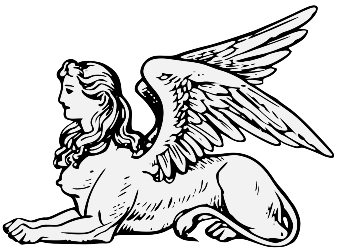Minerva is the Roman goddess of wisdom and strategic warfare, justice, law, victory, and the sponsor of arts, trade, and strategy. Minerva is not a patron of violence such as Mars, but of defensive war only. From the second century BC onward, the Romans equated her with the Greek goddess Athena. Minerva is one of the three Roman deities in the Capitoline Triad, along with Jupiter and Juno.
Minerva is often seen with her sacred animal, usually an owl which named "Owl of Minerva" which symbolising her association with wisdom and knowledge. Minerva is often depicted as a beautiful woman with a muscular, athletic build. She is often seeing wearing armour and carrying a spear.
Etymology[]
The name Minerva stems from Proto-Italic *meneswo' ('intelligent, understanding'), and ultimately from Proto-Indo-European (PIE) *menos ('thought'). Helmut Rix (1981) and Gerhard Meiser (1998) have proposed the PIE derivative *menes-ueh₂ ('provided with a mind, intelligent') as the transitional form.
Family of Minerva[]
In her Hellenic form, Minerva was the daughter of Jupiter, the king of the gods, and Metis, a giant or Titan. By way of lusty Jupiter, Minerva had many half siblings, including Mars, Bellona, Vulcan, and Juventus. Other half siblings included Mercury, the messenger god of commerce, sailing, and travel, Venus, the goddess of love and sexual desire, and Proserpina, the maiden goddess abducted by Pluto. As a virginal goddess, Minerva never had any children of her own. She also never got married and never had a relationship with anyone.
Mythology[]
Birth of Minerva[]
It began—as stories involving Jupiter often did—with his sexual promiscuity. In this case, Jupiter had an affair with a woman named Metis, who in the Greek tradition was described as a Titan. When Metis became pregnant, Jupiter, who had seized control of the universe by overthrowing his father Saturn, learned of a prophecy foretelling his downfall at the hands of his own son. Fearing that Metis’ unborn child would fulfill this prophecy, Jupiter swallowed Metis and her child whole, just as Saturn had swallowed Jupiter’s brothers and sisters.
Biding her time, the unborn Minerva plotted her emergence from the womb. At long last, she burst forth from Jupiter’s forehead, fully grown and ready for battle. Some accounts claimed that Vulcan, the god of metallurgy, served as a midwife of sorts by prying open Jupiter’s head with an axe and delivering Minerva; the moment has been the subject of artistic renderings both ancient and modern. Despite this rather inauspicious start to her relationship with her father, Minerva eventually became Jupiter’s favorite child.
Minerva and Aeneas[]
According to Virgil's Aeneid Minerva initially opposed the founding of Rome and despised its founding hero, the Trojan warrior Aeneas. In Virgil’s first-century BCE masterpiece, Minerva took the place of Athena, the Greek goddess spurned by Paris of Troy. Minerva’s grudge against the Trojans was tremendous and her vengeance severe. Virgil indicated that Minerva hatched the scheme that ultimately led to the sack of Troy. Using her gift of strategic inspiration, she implanted the idea of the Trojan horse into the mind of Ulysses (Odysseus in the Greek), who then directed the creation of the famous gift. Virgil called it "Minerva’s gift of death." When the Trojan dissenter Laocoon raised the alarm, claiming that the horse was a trick that spelled doom for Troy, Minerva sent two sea serpents to kill Laocoon’s sons and devour the father.
When Aeneas escaped from the devastated city, however, he carried away a small statuette of the goddess. Minerva still pursued Aeneas, but the Trojan hero eluded the wrath of the goddess and carried the statuette wherever he went. In time, Aeneas’ guardianship of the object placated Minerva, who read it as a sign of Aeneas’ devotion to her. Aeneas brought the statuette to Italy, and it eventually came to reside in the Temple of Vesta. According to legend, so long as Minerva’s token resided within the temple’s halls, the city of Rome would never be conquered.
External links[]
| Gods and goddesses of Roman mythology | |
|---|---|
| Classical deities | Apollo • Bacchus/Liber • Diana • Ceres • Cupid • Faunus • Fortuna • Juno • Jupiter • Lares • Mars • Mercury • Minerva • Neptune • Pluto • Proserpina • Quirinus • Vejovis • Venus • Vesta • Vulcan |
| Other deities/articles | Genius • Hercules • Dei Lucrii • Eventus Bonus • Furina • Portunes • Mystery religions • Osirus • Isis • Cybele • Attis • Mithras • Sol Invictus |
